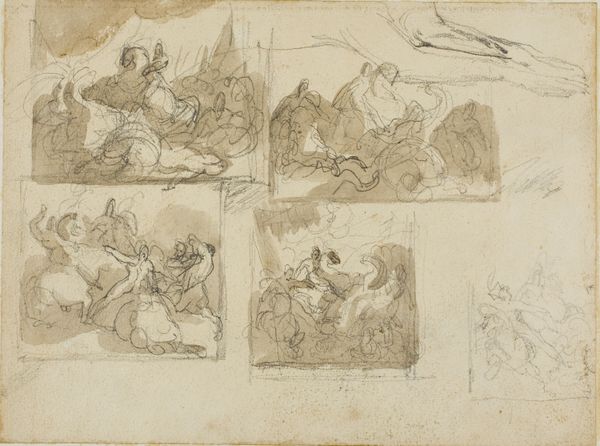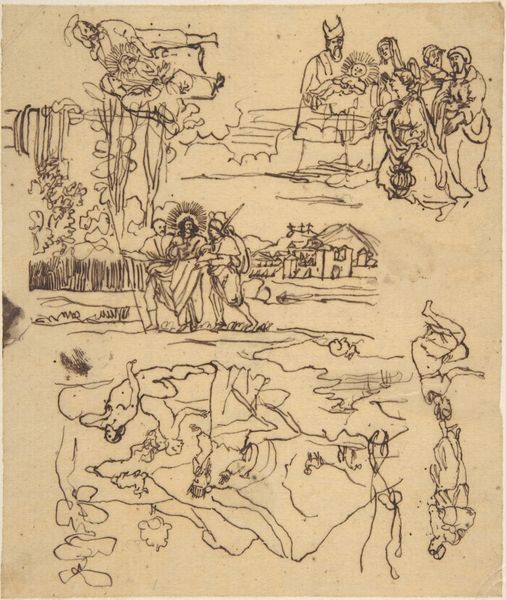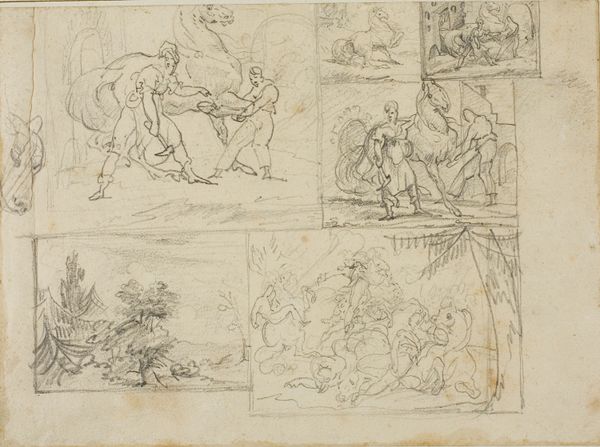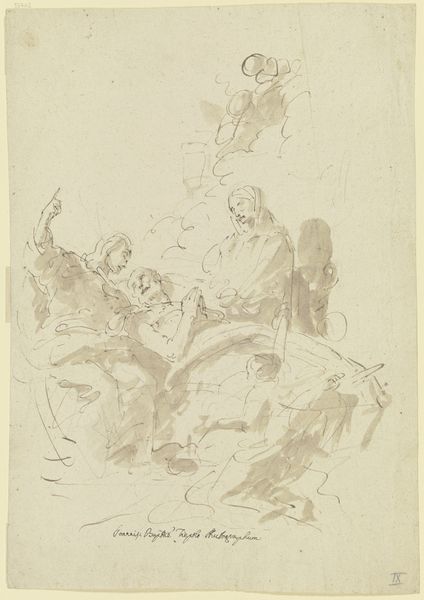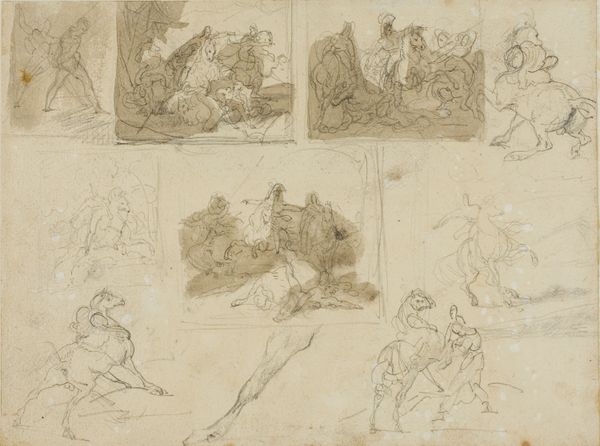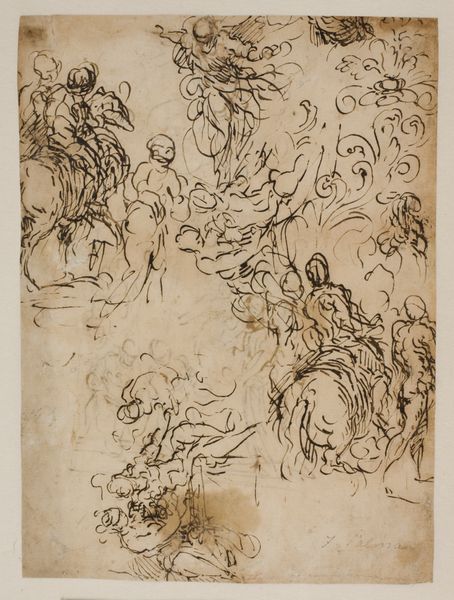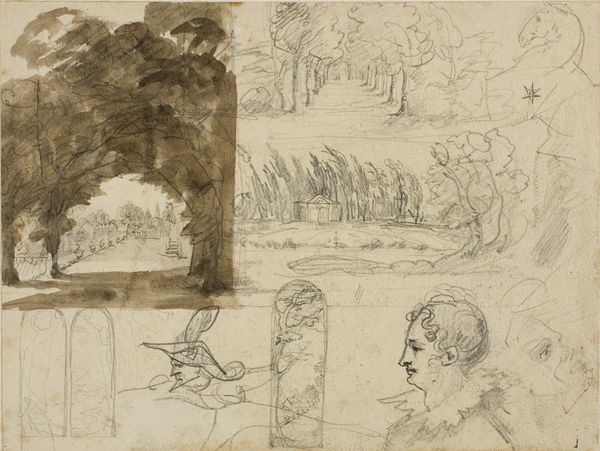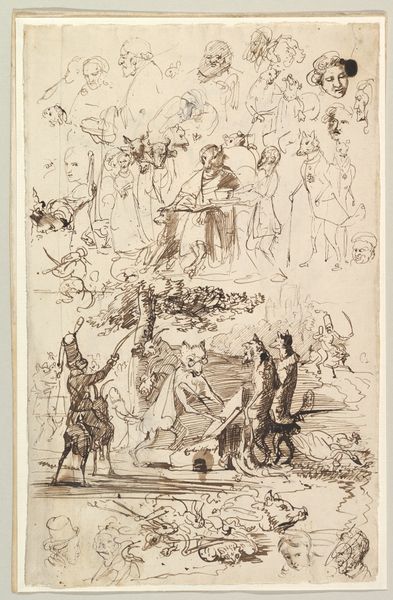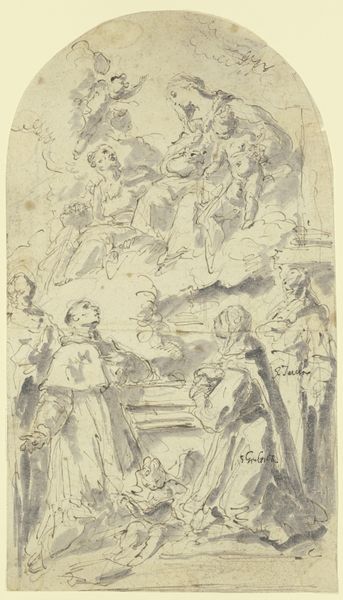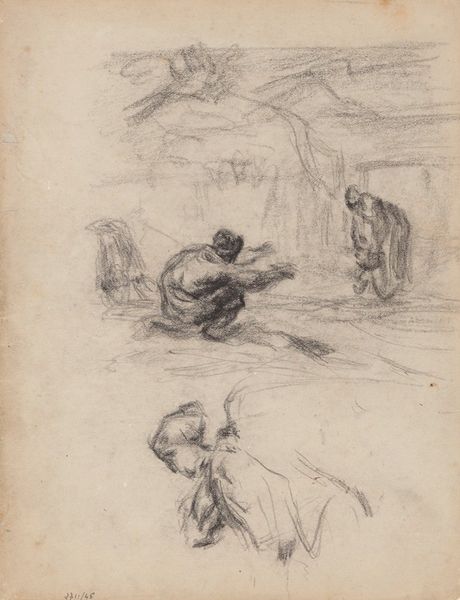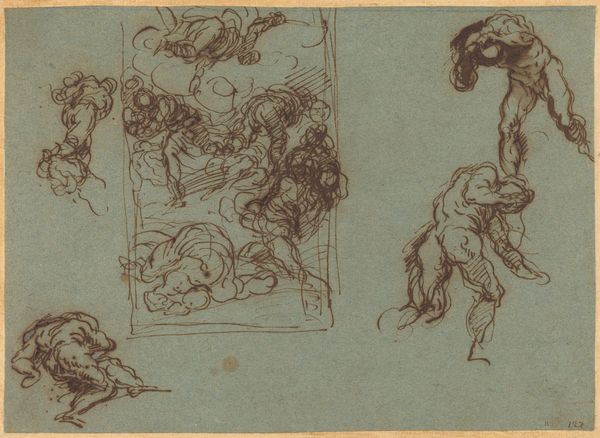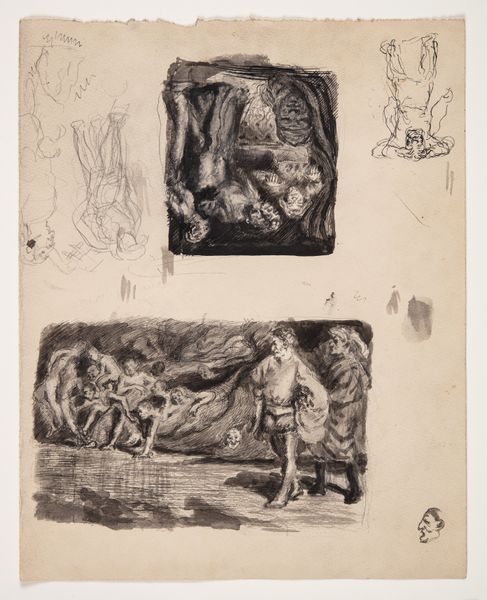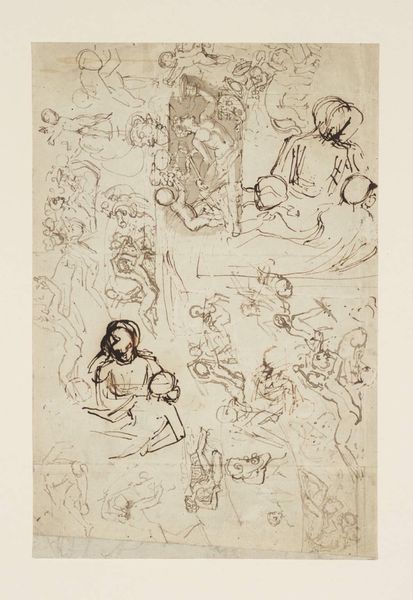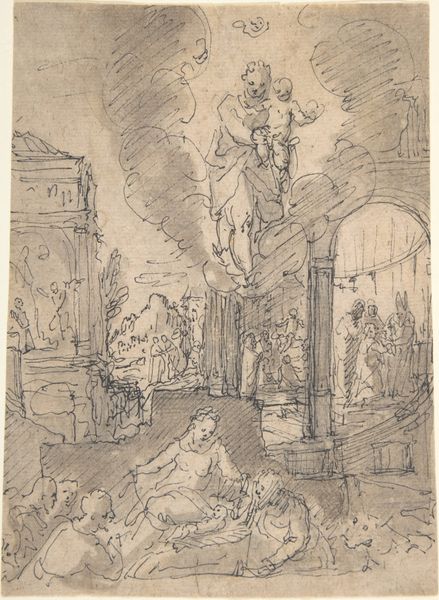
Sketches of a Forest Path and a Musical Boating Party 1813 - 1814
0:00
0:00
drawing, print, paper, ink, graphite
#
drawing
#
toned paper
#
light pencil work
# print
#
pencil sketch
#
incomplete sketchy
#
paper
#
personal sketchbook
#
ink
#
ink drawing experimentation
#
underpainting
#
detailed observational sketch
#
france
#
water
#
graphite
#
watercolour illustration
#
watercolor
Dimensions: 229 × 169 mm
Copyright: Public Domain
Editor: Here we have Théodore Géricault's "Sketches of a Forest Path and a Musical Boating Party," created around 1813-1814, employing graphite, ink and watercolour on paper. The composition appears fragmented, a collection of disparate scenes. What organising principles do you observe at work here? Curator: It is primarily the stark contrasts in value that structure the composition. Note how Géricault plays with areas of concentrated darkness versus regions of the blank page to create distinction. We can interpret this in terms of formal organisation and depth. The density of line determines a kind of hierarchy. The musical boating parties, rendered in lighter pencil, contrast starkly with the two framed landscapes worked in much darker ink. The light appears almost sculpted out of the toned paper. Editor: So the tonal differences essentially separate and categorise the subjects on the page? Curator: Precisely. And consider the shapes themselves. Notice how the fluid, curvilinear forms of the figures and foliage contrast against the sharp rectangles in which the forest scenes are enclosed. Do you believe these frames establish separate viewpoints? Editor: It could suggest multiple perspectives, or perhaps stages in a journey. It also highlights the boundary between observation and invention. It also creates very diverse shapes. Curator: Precisely, that rectangle sharpens the appreciation of form itself! Notice, too, the orientation of the compositional elements: they refuse a conventional reading, prompting the viewer's eye to traverse in unpredictable ways. It disrupts conventional expectations and highlights the materiality of art making. Editor: That makes me look at it in a completely different way. Curator: Exactly, formal analysis directs our attention away from narrative to artistic method. These drawings invite one to appreciate the visual construction and surface.
Comments
No comments
Be the first to comment and join the conversation on the ultimate creative platform.
